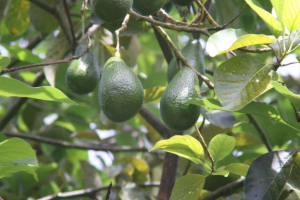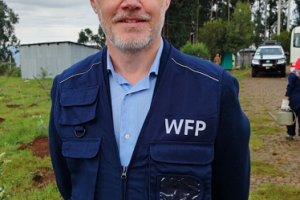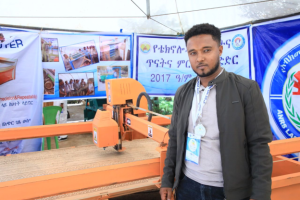
The transition from the African Union Transition Mission in Somalia (ATMIS) to the African Union Support and Stabilization Mission in Somalia (AUSSOM) requires careful management to avoid creating a security vacuum, experts warn.
The African Union Peace and Security Council (PSC) has approved the Concept of Operations (CONOPs) for AUSSOM, which is set to take over from ATMIS on January 1, 2025, marking a critical shift in the peacekeeping landscape of the war-torn nation.
Concerns have emerged among regional countries and various Somalis themselves, especially following Egypt’s proposal to participate in the new mission alongside Djibouti. Many Ethiopian politicians and scholars believe that Egypt’s involvement may be driven by hidden agendas; particularly regarding its roughening relation with Ethiopia.
Ethiopia’s Ministry of Foreign Affairs (MoFA) emphasizes that both the AU and the UN must ensure a careful deployment of post-ATMIS forces in Somalia to prevent unnecessary regional tensions, in line with relevant Security Council resolutions. As a neighbouring country and a key contributor to regional security, Ethiopia is closely monitoring the situation.
The Foreign Affairs Institute (IFA) senior researcher Gizachew Asrat stressed the importance of managing this transition to prevent a security vacuum that could be exploited by terrorist groups like al-Shabaab.
In an exclusive interview with The Ethiopian Herald, he highlighted that the transition must consider the current political context in the region.
Another IFA’s scholar Anteneh Getachew also argued that the AU should intensify diplomatic efforts to engage Ethiopia, Egypt, and other key regional players to build consensus and cooperation around the security transition in Somalia.
In a recent article published on the IFA website, he warned that heightened tensions between Somalia’s federal government and local clans could allow Egypt to support autonomous local forces or militant groups, further weakening the Federal Government’s authority and exacerbating clan-based antagonisms.
Moreover, he quoted unquote critics who argue that incorporating Egyptian forces into AUSSOM undermines the regional ownership and leadership that characterized the ATMIS mission, which was mainly led by East African troop contributors. This shift towards unilateral decision-making could complicate the already fragile political and security situation in Somalia and the broader region.
Antenehsaid that the success of ATMIS was largely due to the dominant role of East African contributors, which reinforced Somalia’s ownership of the security transition. Excluding key forces like Ethiopia, Kenya, and Uganda while promoting Egyptian leadership in AUSSOM may dilute regional ownership, undermine the mission’s legitimacy, and erode international confidence in the transitional process.
Ethiopia’s role in stabilizing Somalia is crucial, as highlighted by Field Marshal Birhanu, Chief of General Staff of the Ethiopian National Defence Forces (ENDF), who recently welcomed a battalion back from a successful peacekeeping mission under ATMIS. He noted that the ENDF has made significant sacrifices for peace in Somalia.
Gizachew further emphasized Ethiopia’s long-standing commitment to peacekeeping, pointing out that Ethiopian troops have historically made substantial sacrifices to combat terrorism and support stability in Somalia. He stressed that Ethiopia’s contributions to regional peace are widely recognized.
Regarding the new mission, Anteneh noted that a Strategic Concept of Operations has been adopted, with Egypt and Djibouti offering to contribute to AUSSOM. This development raises concerns about Egypt’s strategic intentions, as it seeks to establish military presence in the Horn of Africa (HoA), potentially exerting pressure on Ethiopia over Nile water disputes.
The precarious security architecture in the region could deteriorate further if Egypt’s involvement reverses the achievements made under ATMIS, exacerbating tensions and instability in Somalia and affecting the broader HoA region. This could disrupt trade routes, migration patterns, and economic activity, ultimately hindering regional development.
Public sentiment in Somalia also reflects concerns over Egypt’s involvement, with several regional administrations calling for an extension of ATMIS. The suspicion that Egypt’s participation is driven by its own interests may weaken public confidence in the Somali government and the overall political process, he elucidated.
Both scholars advocated for dialogue and diplomatic negotiations to ease tensions. Gizachew emphasizes the need to understand and separate Ethiopia’s economic interests from its peacekeeping role, advocating for regional cooperation to address historical challenges in the HoA.
Anteneh suggested that Ethiopia could adopt a multi-faceted approach to mitigate potential backlash from Egypt’s involvement in AUSSOM. This includes maintaining active diplomatic engagement with the AU, the Somali government, and other regional stakeholders, while preparing defensive measures to address any potential retaliatory actions from Egypt.
During a recent meeting in New York on the margins of the 79th session of the UNGA with Rosemary DeCarlo, Under Secretary-General for Peace building and Political Affairs at the UN, Ethiopian Foreign Minister TayeAtske-Selassie reiterated the importance of deliberating on all aspects of the post-ATMIS arrangement, including its mandate and financing. He expressed concerns that supplying ammunition to external forces could exacerbate the fragile security situation.
DeCarlo reaffirmed the UN’s commitment to working with Ethiopia on regional peace building issues.
BY EYUEL KIFLU
THE ETHIOPIAN HERALD WEDNESDAY 2 OCTOBER 2024





